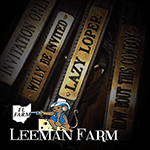Do you see yourself as an athlete and a performer? From my experience, some equestrian performers see their horse as an athlete, but not necessarily themselves. However, I dare to say that if you are competing in horse shows, you are an athlete and performer. And you can learn from other top performers how to have a great mindset for showing.
Top performers take the time to reflect on the thinking processes and develop the mental skills and habits that can help them be at their best in key moments! It is true that with experience, people gain more emotional composure and confidence. However, it is has been shown time and time again that less experienced competitors can mature their confidence and composure at a faster rate with mental game development.
As sport psychology experts Terry Orlick and John Partington write, “Many highly successful athletes felt that they could have reached the top much sooner if they had worked on strengthening their mental skills earlier in their careers…” (Mental Links to Excellence)
And I would add that even the veterans in a sport can still learn and grow.
As part of my master’s program, I studied the mental process of an elite cardiac surgeon. He is a top performer in his field, and mental preparation is part of his success. You want to talk about pressure in the moment. He always has someone’s life or death in his hands. What is the mind-set you would hope a surgeon would have? Expectations to win every time, and a preparation process to optimally prepare his mind and body. I can tell you this surgeon’s preparation included thoughtful preparation every step of the way, including efforts to create a positive team environment, the right mood music, and detailed mental rehearsal.
Learning how to create and commit to the mindset that works for you can lead you to have the results you dream about. Let’s start with a mental mistake I see quite often with performance horse competitors and other athletes alike in terms of mental preparation and how to change it. A mistake I see quite often is not having a consistent pre-competition routine that includes mental components, or having one and not following it.
Think back for a moment to the surgeon… Would you want to be under the knife of a surgeon who wasn’t mentally prepared, or who didn’t review / visualize properly all the steps in the procedure with confidence and feel? Who wasn’t attentive to his thoughts, emotion or attitude going in? Who didn’t try to create a positive feel and atmosphere for his team with the right kind of encouragement?
You have to first recognize that mindset does matter. If you get overly stressed or tense and do not acknowledge this, or you are missing as part of your preparation fundamental mental components, results will be more inconsistent. I have seen many horse show competitors and athletes in other sports not advance or place higher than they were capable of, because of poorly executed pre-competition preparation.
Mental steps are not necessarily hard to implement; it is just that there is often a lack of knowledge and planning on how to bring fundamental mental preparation steps together to support both horse and rider to really be at their best.
We have a saying in my field of work – if you have a weak routine, expect weak or inconsistent performances. Without a good routine — without positive thinking and mental skills established — expect to be more easily rattled, intimidated, psyched out or simply not maximally prepared.
A good mental preparation routine will lead you to greater composure, focus and confidence. It is a combination of physical readiness steps plus strong mental skills and reminders, sequenced thoughtfully leading up to “show time”.
So here are five key components to include in a great mental preparation routine.
Number 1 – Train your brain away from remunerating thoughts that start with “should of” or “could of”. If there are things you need to improve or do differently, save collecting those ideas for after the ride or show.
Number 2 – Engage mental and physical rehearsal for both horse and riders of key elements so that both horse and rider have “feel” for movements required, i.e. turns, transitions, back-ups.
Number 3 – Identify and use simple key word reminders as part of your mental rehearsal for executing the ride you want to have, i.e. “slow and steady”, “smooth transitions”
Number 4 – Develop skill in self-regulating strategies to channel nervous energy, such as breathing and tension releasing exercise.
Number 5 – Commit to a positive and confident attitude by using reminders like “you got this!” or “have fun and enjoy the ride.”
For more information on mental performance development for riders please click here.
All the best in sport and life,
Tara









